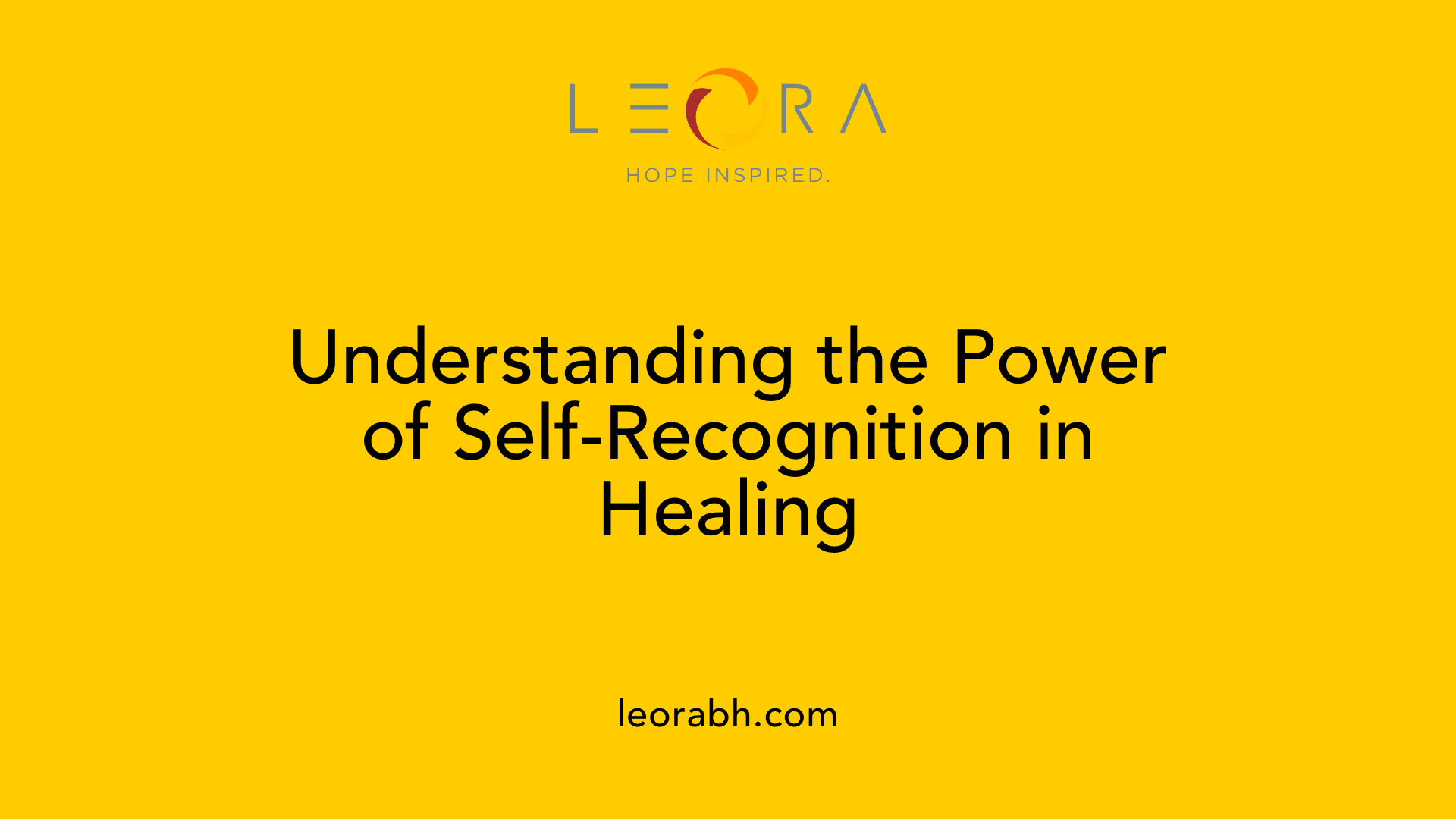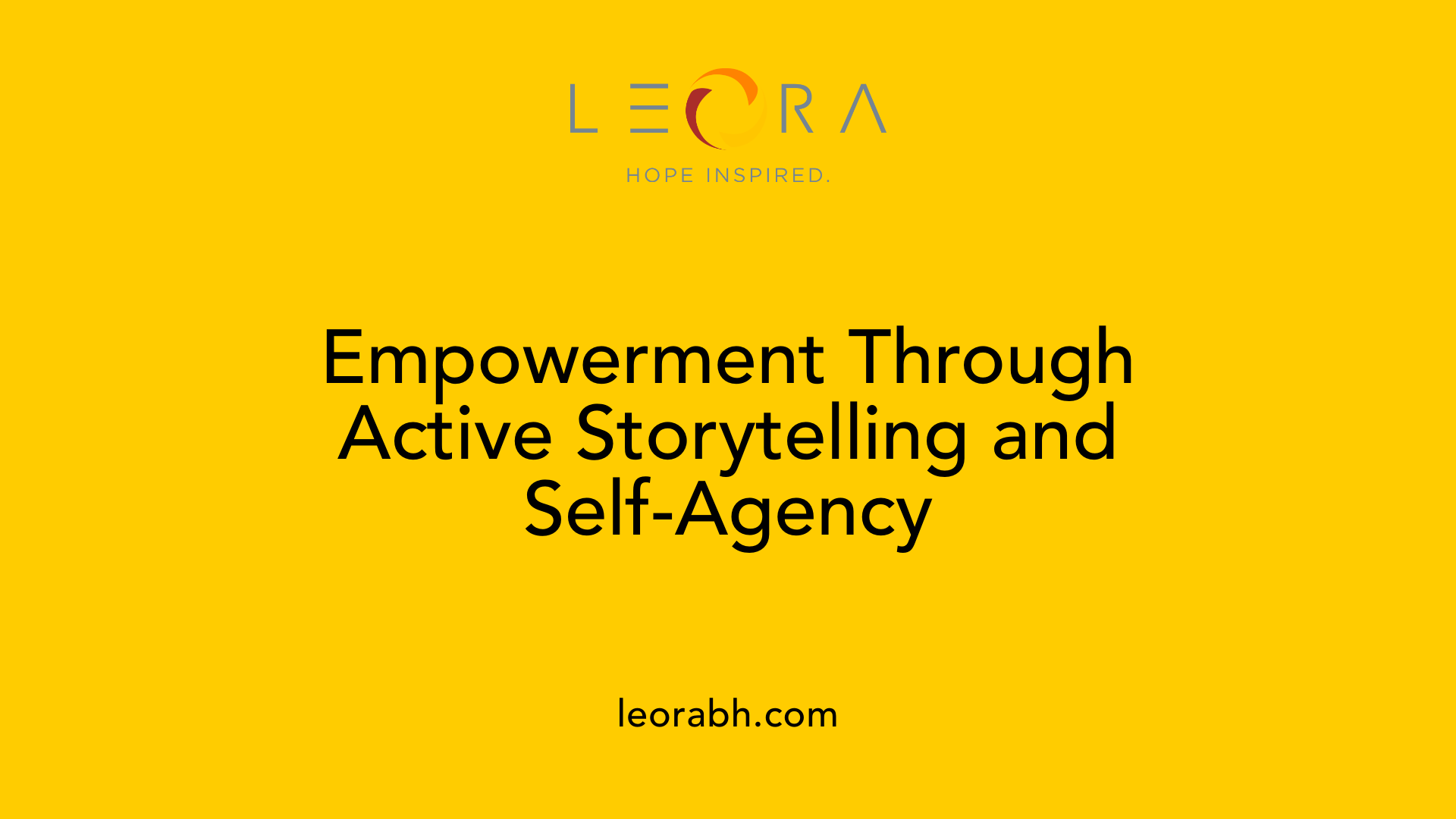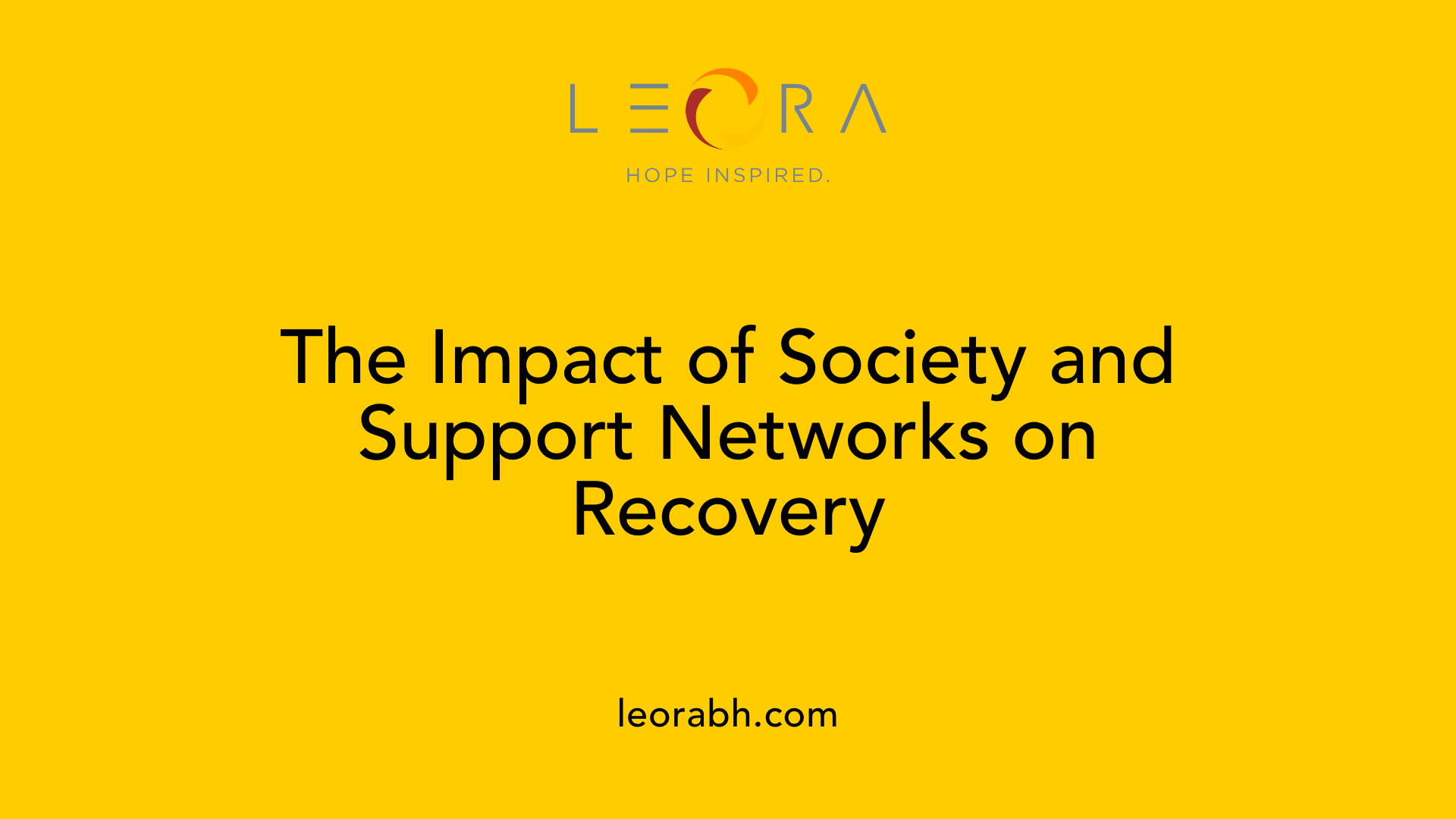The role of identity reconstruction in recovery
Rebuilding the Self: How Identity Transformation Fuels Recovery
Understanding the Power of Personal Identity in Recovery Processes
Recovery from mental health challenges, addiction, or brain injury is a profoundly transformative journey that hinges on the reconstruction of personal identity. This article explores the critical role that identity reconstruction plays in healing, highlighting methods, theoretical frameworks, empirical evidence, and social dynamics that facilitate this complex process across various recovery contexts.
Defining Identity Reconstruction
What is identity reconstruction?
Identity reconstruction is the process through which individuals or groups reshape their sense of self in response to significant life changes, experiences, or societal shifts. This process often involves reflecting on one's past, re-evaluating current roles, and envisioning future identities. For example, after experiencing a health crisis such as a brain injury or stroke, individuals may work to develop a new understanding of who they are beyond their injury.
In the context of recovery from substance use disorders, identity reconstruction can involve shifting from an 'addict' label to an identity centered around sobriety, responsibility, or personal growth. Similarly, in mental health recovery, people may redefine themselves from a state of illness or trauma to one of resilience and strength.
Its role in personal growth and societal adaptation.
This ongoing process supports personal growth by helping individuals internalize new beliefs, develop fresh social roles, and find new sources of fulfillment. It also plays a vital role in societal adaptation, as communities and social networks adjust to diversity, migration, or social change.
For migrants or returnees, identity reconstruction often entails balancing their original cultural identity with new environmental influences. This can lead to a blending of traditions or a reevaluation of cultural values, facilitating smoother social integration.
Throughout these processes, social support, personal agency, and societal recognition significantly influence how successfully individuals can reconstruct their identities. Ultimately, identity reconstruction reflects an adaptive, evolving narrative that resonates with personal development and societal change.
Understanding Recovery Identities
What is a recovery identity?
A recovery identity is the way individuals see themselves after choosing to overcome substance use or addiction. It involves adopting a new self-perception that aligns with being abstinent, in recovery, or part of a recovery-supportive community. This shift often requires leaving behind the old identity of being an addict, which can be deeply intertwined with social roles, habits, and beliefs.
Forming a recovery identity is more than just a personal change; it involves social recognition and acceptance. When individuals see themselves as responsible, capable, and part of a supportive network, it strengthens their resolve and helps prevent relapse.
Its significance in sustained recovery.
Having a well-established recovery identity plays a vital role in maintaining sobriety over the long term. It reinforces positive behaviors, promotes social integration, and boosts self-esteem. Recovery communities and peer support groups are essential in helping individuals embrace this new identity, providing validation and reducing stigma.
Experiencing social recognition, such as gaining employment or rebuilding relationships, confirms their new self-image as a person in recovery. Conversely, failure to develop a strong recovery identity can make it harder to sustain change, as old labels and associations with addiction may persist.
Overall, fostering a robust recovery identity is crucial in transforming the recovery journey into a sustainable, empowered process. It aligns personal growth with social acceptance, supporting individuals to thrive beyond their past struggles.
The Significance of Identification in Recovery

Why is identification so important in recovery?
In the journey of recovery from substance use disorders, how individuals see themselves plays a pivotal role. Addiction often reshapes a person's self-concept, leading to labels like 'addict' that can embed feelings of shame and hopelessness. This internalized identity influences behavior and may reinforce continued substance use despite negative consequences.
Reconstruction begins by externalizing substance use—seeing it as separate from who they are—and reflecting on past experiences to understand the impact of addiction. Such processes help individuals develop a new, healthier self-image that is distinct from their previous addiction-centered identity.
Recognizing the fluid and multifaceted nature of identity allows for growth and adaptation. Embracing this complexity enables individuals to experience personal transformation rather than rigidly cling to an old self-definition.
Creating new social connections and routines that celebrate recovery further reinforces this fresh identity. For example, engaging in meaningful work, hobbies, or social groups provides affirming environments that support the rebuilding self.
Ultimately, forming a strong, authentic identity enhances resilience. It fosters a sense of purpose and acceptance, equipping individuals with the psychological resources needed to navigate ongoing challenges and sustain long-term recovery. This process of identification underscores how vital a positive self-concept is for enduring success in overcoming addiction.
The Impact of Discontinuity on Self-Concept
How addiction affects self-identity.
Substance use disorders often lead to profound changes in how individuals see themselves, commonly described as an identity disruption. Many people who struggle with addiction internalize labels like 'addict,' which can shape their self-understanding and social identity.
This reshaping of self-perception makes recovery challenging yet essential. Transitioning away from an addictive identity involves not just stopping substance use but also redefining oneself beyond the role of an addict.
For example, individuals may aim to rebuild new identities centered on employment, family, or community involvement, which are often seen as more positive and productive roles.
The disruptions caused by trauma or injury.
Traumatic events and injuries, like strokes or brain injuries, also cause significant identity disruptions. These events can alter a person's abilities and social roles, leading to feelings of loss and disconnection.
People with acquired brain injury (ABI), for instance, report a complex emotional journey as they attempt to reconstruct their sense of self. Narratives from those with ABI show themes of acceptance, adaptation, and sometimes feeling disabled or different.
Research highlights that identity reconstruction after trauma is a dynamic process, involving storytelling and social interactions that help individuals regain a sense of coherence and purpose.
What role does identity disruption play in recovery?
Discontinuity of self is a critical aspect of recovery processes. It can serve both as a motivator and an obstacle.
On one hand, recognizing a disrupted identity and striving to establish a new one can motivate individuals to seek change and recovery.
On the other hand, difficulty in forming a new, positive self-concept or attempting to cling to a pre-disruption identity may hinder progress.
Empirical evidence suggests that recovery is often accompanied by identity crises, characterized by contrasts between the individual's past, present, and future self-perceptions. Successfully navigating these crises involves reconfiguring one's self-view, which is crucial for fostering resilience and long-term change.
Ultimately, the acknowledgment and reconstruction of a damaged or altered identity are foundational steps in the recovery journey. This process enables individuals to develop a cohesive self-concept, promoting improved mental health and stability in both addiction and trauma recovery contexts.
Narrative Processes and Identity Construction Post-Injury
How do narrative processes contribute to identity reconstruction after brain injury?
Narrative analysis plays a vital role in understanding how individuals rebuild their identities following brain damage, such as stroke or acquired brain injury (ABI). By examining personal stories and discourse, researchers can uncover how survivors interpret their injuries and integrate them into their life stories.
These narratives reveal patterns of identity reconstruction, including feelings of loss, adaptation, and hope. Four main positional themes often emerge:
- Sanctioning a radical break with previous life
- Assuming salvation and adaptation
- Feeling different and disabled
- Considering new possibilities and active self-construction
Through storytelling, individuals process their experiences, making sense of changes and shaping their future selves. Narrative construction not only reflects their internal psychological state but also influences their recovery journey.
Practitioners can use narrative insights to tailor psychosocial support, fostering resilience and promoting a sense of agency. Empirical evidence shows that the stories people tell about their injuries are central to their adaptive growth and can serve as tools for empowerment.
Key themes in post-brain injury identity rebuilding
In analyzing narratives from individuals with brain injury, four prominent themes surface:
| Theme | Description | Impact on Recovery |
|---|---|---|
| Radical Break | Viewing injury as a complete life shift | Facilitates acceptance and new beginnings |
| Salvation & Adaptation | Finding meaning through hope and adaptation | Encourages resilience and active coping |
| Feeling Different & Disabled | Recognizing changed self-perception | Challenges self-esteem but can motivate self-acceptance |
| New Possibilities & Self-Construction | Exploring future identities | Promotes growth and intentional change |
These themes are intertwined with personal agency, relational dynamics, and societal recognition. Supporting individuals in constructing empowering narratives is crucial for their well-being.
By recognizing the fluid and evolving nature of identity, clinicians can help patients forge coherent stories that integrate their health experiences, fostering a sense of continuity and purpose despite traumatic disruptions.
Theoretical Models of Narrative Identity Reconstruction

What theoretical models help explain narrative identity reconstruction?
Understanding how individuals rebuild their sense of self during recovery is supported by several influential theoretical frameworks. These models offer insights into the processes of personal transformation and how stories of change are constructed.
One prominent model is the Hero’s Journey, a metaphorical narrative arc depicting a hero’s quest for growth through hardship and resilience. In recovery contexts, individuals often see their journey as a hero’s adventure, emphasizing personal transformation and resilience as they overcome challenges. This framework encourages active engagement with one's story of change, fostering hope and agency.
The Life Story Model of Identity (LSMI) emphasizes the importance of integrating past experiences, present realities, and future aspirations into a cohesive narrative. This integration helps maintain a stable self-concept while allowing adaptation and growth. In recovery, reconstructing a life story that includes turning points, lessons learned, and future goals can promote a sense of continuity and purpose.
Intentional Change Theory (ITC) centers on purposeful self-directed change. It highlights processes like gaining self-awareness, setting meaningful goals, and deliberately shaping one’s identity. This model underscores that recovery involves active efforts to reframe oneself and pursue a new, healthier identity.
Together, these models present a comprehensive understanding of narrative identity reconstruction as an active, agentic process. They emphasize storytelling as a tool for fostering resilience, personal growth, and adaptive change, enabling individuals to craft new identities aligned with their recovery goals.
Active Personal Agency in Narrative Construction

How does agency influence recovery?
Agency, which refers to an individual's ability to actively shape and reconstruct their identity through their actions and discourse, is central to the recovery process. When individuals perceive themselves as capable of influencing their own story, they often experience enhanced resilience and psychological well-being.
Research shows that higher levels of personal agency enable individuals to navigate the complexities of recovery more effectively. This sense of control facilitates the process of identity reconstruction, allowing a person to shed old identities rooted in addiction or trauma and construct new, empowering narratives.
Active agency fosters adaptive growth by encouraging individuals to take deliberate steps towards their goals, reflect on their experiences, and develop a sense of mastery over their recovery journey. This proactive engagement is vital for overcoming setbacks and maintaining motivation over time.
Why is active storytelling important?
Telling one's recovery story is more than just recounting past events; it is a dynamic process of meaning-making. Through active storytelling, individuals can reframe their experiences, highlight moments of strength, and assign new, positive meanings to their journey.
Narrative practices that emphasize agency empower individuals to see themselves as active protagonists rather than passive victims. This perspective helps in constructing a cohesive narrative that integrates challenges, growth, and future possibilities.
Active storytelling fosters hope and reinforces a sense of purpose. It allows individuals to visualize a positive future and motivates them to pursue new paths aligned with their values and aspirations.
Overall, fostering personal agency in narrative construction is instrumental in sustaining recovery, as it cultivates a sense of ownership, resilience, and optimism.
| Aspect | Explanation | Impact on Recovery |
|---|---|---|
| Agency | Personal capacity to actively shape one's story | Enhances resilience and psychological well-being |
| Active storytelling | Deliberate recounting and reframing of experiences | Builds hope and a cohesive self-concept |
| Outcome | An empowered, hopeful identity | Supports sustained recovery and growth |
This focus on agency emphasizes the importance of individuals' active participation in their recovery story, reinforcing that personal empowerment is a cornerstone of lasting change.
Narrative Interventions and Support Strategies
What methods facilitate identity reconstruction during recovery?
Supporting identity reconstruction in recovery involves a range of therapeutic and experiential strategies. One prominent approach is narrative therapy, which enables individuals to reframe their personal stories, making sense of their experiences and creating a cohesive, empowering self-narrative. Through storytelling, individuals can integrate traumatic or disruptive events, such as addiction or brain injury, into a meaningful life story that fosters resilience.
Social support networks also play a crucial role by providing validation, companionship, and a sense of belonging. These networks help individuals rebuild confidence and reinforce positive identity shifts through shared experiences and mutual encouragement.
Personalized interventions tailor treatment to an individual’s unique history and challenges, addressing specific issues like shame, loss of self-esteem, or social disconnection. Activities promoting self-awareness—such as mindfulness, peer groups, or self-reflective exercises—further facilitate acceptance and personal growth in forming a new identity.
Innovative methods are increasingly gaining attention. Narrative coaching, especially when combined with experiential exercises, offers an active engagement process. For example, using boardgames designed to reflect archetypal hero’s journeys simulates challenges and transformations, inspiring individuals to envision and work towards a reconstructed, agentic self.
This multidimensional approach—integrating narrative techniques, social support, personalized therapy, and experiential tools—provides a comprehensive framework to support individuals through the complex process of identity reconstruction during recovery.
The Role of Social Recognition and Contexts

How social acceptance and recognition influence identity.
Recovery is deeply intertwined with societal perceptions and social acknowledgment. When individuals work towards rebuilding their lives after addiction, brain injury, or other significant health setbacks, recognition from their community and social networks plays a pivotal role.
Being acknowledged for their efforts and new roles helps individuals feel valued and respected, fostering a positive sense of self. Social acceptance affirms their progress and encourages continued growth.
The importance of societal roles and support.
Engaging in social roles like employment, volunteering, or community participation reinforces a sense of purpose and belonging. These roles serve as external validations of their changed identities, helping to solidify their new self-concepts.
Support networks, including families, peer groups, and social services, contribute significantly by providing emotional validation and practical assistance, which are essential in affirming a person's evolving identity.
Why is recognition so important in recovery?
Recognition by society, especially through work and social roles, supports positive identity formation in recovery, based on Honneth’s theory of recognition. Actions, interventions, and social practices that foster social recognition can reinforce individuals’ self-esteem and a sense of belonging.
It is through societal acknowledgment of new roles—such as employment, community involvement, or social participation—that individuals can solidify their new identities, thereby reinforcing recovery and societal reintegration.
Recognition thus acts as a vital social catalyst that validates individuals’ efforts and transforms their self-perception in a supportive community context.
More information
Exploring further the connection between social recognition and recovery identity reveals that fostering supportive environments—whether through public awareness, social policies, or community programs—can significantly enhance recovery outcomes. Ensuring that individuals are seen and valued for their efforts helps sustain their motivation and supports long-term identity transformation.
Place and Material Environment in Identity Rebuilding
How do physical places and objects influence identity reconstruction?
The environment, particularly physical places and tangible objects, plays a pivotal role in how individuals reconstruct their identities during recovery processes. Having one's own personal space, such as a safe home or a meaningful community setting, acts as a foundation for self-reintegration. For individuals overcoming substance use disorder, stable housing is not just about shelter; it symbolizes stability, independence, and a new beginning.
Research highlights that environment shapes perceptions and narratives of recovery. Visual methods, including photo-elicitation interviews, underscore how physical spaces influence a person’s sense of self and progress. Personal belongings, furniture, and the layout of living spaces contribute to creating a sense of belonging and autonomy.
The physical environment provides a backdrop for social interactions, enabling individuals to rebuild relationships and establish new routines aligned with their emerging identities. Such spaces bolster feelings of safety and acceptance, essential for developing confidence and a sense of control.
Themes like housing as a foundation for self-re-integration
Housing is often seen as a key enabler in the process of identity reconstruction. Securing a stable home helps individuals move beyond the chaos and instability often associated with addiction or trauma.
In recovery narratives, obtaining independent living arrangements is frequently linked with reclaiming personal dignity and establishing a responsible, self-directed life.
Moreover, environments influence social participation, facilitating integration into supportive communities and networks. These social bonds reinforce positive identity changes and contribute to a resilient recovery journey.
In summary, physical places and objects serve not merely as settings but as active components in shaping, reflecting, and supporting the ongoing reconstruction of self during recovery.
Healing through Reconnection with Values and Passions

Reconnecting with personal values, passions, and authentic qualities
A vital part of recovery from substance use disorders, brain injuries, or mental health challenges is rediscovering what truly matters to oneself. This process involves reflecting on core values and passions that may have been overshadowed during periods of illness or addiction.
Individuals often find that reconnecting with their authentic qualities helps them rebuild a sense of self that is neither defined by past struggles nor by societal labels. Engaging in activities that align with personal values can foster a sense of purpose and improve self-esteem.
Activities that support personal growth and self-acceptance
Exploring new hobbies and revisiting old passions are effective ways to promote personal growth. Participating in community activities, volunteering, or creative pursuits can help individuals experience joy and build supportive social networks.
Setting achievable goals and celebrating milestones reinforce progress, bolster confidence, and motivate continued growth. Practices like mindfulness and self-compassion also play important roles in fostering self-acceptance.
Incorporating these approaches into recovery journeys not only helps individuals develop a resilient and positive identity but also promotes overall well-being. Support from peers, therapists, and community groups can guide and sustain this process of authentic self-reconnection.
Steps and Strategies for Effective Identity Rebuilding
Reflecting on core values.
Recovering individuals often begin the process of identity rebuilding by exploring their core values. This step involves introspection to identify what matters most to them, which helps in aligning their new life with authentic beliefs and priorities. Recognizing personal values provides a foundation for creating a meaningful narrative about their past, present, and future.
Exploring new hobbies.
Engaging in new activities and hobbies can facilitate personal growth and help individuals discover passions that resonate with their evolving identity. Exploring different interests allows for the redefinition of self, fostering confidence and a sense of purpose.
Building social support.
A strong social network is essential during recovery. Connecting with supportive friends, family, or support groups offers emotional reinforcement, accountability, and a sense of belonging. Such relationships reinforce positive identity changes and provide encouragement through challenging times.
Setting future goals.
Setting realistic and meaningful goals guides individuals in envisioning their future. These goals serve as milestones that motivate continued progress and reinforce a proactive, agentic self-concept. Clear goals also help in maintaining focus and resilience during setbacks.
Challenging negative self-talk.
An important part of identity reconstruction involves recognizing and reframing negative beliefs about oneself. Practicing self-awareness and employing positive affirmations can combat self-doubt, promoting a compassionate and empowering inner dialogue.
Prioritizing self-care.
Prioritizing physical, emotional, and mental well-being supports the overall process of identity rebuilding. Self-care activities, such as exercise, mindfulness, and sufficient rest, nurture resilience, boost self-esteem, and facilitate the development of a healthier self-image.
Implementing these strategies helps individuals reconstruct a resilient, authentic identity that supports long-term recovery and well-being, emphasizing personal transformation and active participation in the healing journey.
Overcoming Challenges in Identity Reconstruction
What are common challenges faced during identity reconstruction in recovery?
Recovery is a dynamic process that often involves significant challenges related to rebuilding one’s sense of self. Among these, loss of self-esteem is a prominent obstacle. Individuals may feel overwhelmed by feelings of worthlessness or shame, especially when past behaviors or life circumstances have led to social stigma or personal disappointment.
Relationship disconnection is another frequent issue. As individuals shift away from old identities, their social roles and connections may change or diminish. This can lead to feelings of loneliness or alienation, complicating the journey to a coherent new self.
Letting go of familiar routines and routines is also a critical difficulty. Old habits, routines, and environments that once defined a person can become barriers to creating an authentic new identity. Moving beyond these routines requires deliberate effort and resilience.
How can individuals address these challenges?
Addressing these hurdles involves fostering self-compassion, building supportive relationships, and gradually establishing new routines aligned with the emerging identity. Therapeutic support, such as narrative therapy, can help articulate and process these feelings.
Joining support groups provides a sense of belonging and peer understanding, which bolsters self-esteem and reconnects individuals with social networks.
Exploring new hobbies, setting achievable goals, and embracing change are strategies that assist in letting go of old routines and routines while enhancing self-efficacy.
Ultimately, overcoming these challenges involves patience, persistence, and a willingness to view setbacks as part of the growth process. Supportive environments and positive reinforcement are vital to facilitate genuine, lasting identity reconstruction.
Celebrating Milestones and Growth
Recovery from substance use disorders and other traumatic events often involves significant identity transformation. One effective way to support this process is through celebrating milestones and personal growth. Recognizing achievements, no matter how small, reinforces progress and helps individuals see tangible evidence of their efforts.
Celebrating milestones—such as maintaining sobriety for a certain period, reconnecting with loved ones, or establishing new routines—serves to boost self-esteem. It reminds individuals of their capacity for positive change and resilience, which can be crucial during challenging times.
This positive reinforcement encourages continued effort and fuels motivation to pursue further growth. Achievements create a sense of accomplishment and help solidify a new, healthier self-concept.
Effective recovery practices often include acknowledging these milestones through personal reflection, social recognition, or celebratory activities. Such practices not only foster a sense of mastery over one's journey but also support the ongoing construction of an adaptive, hopeful narrative about oneself.
In summary, celebrating milestones and personal growth is a vital part of the recovery process. It reinforces progress, enhances self-esteem, and motivates individuals to continue their journey toward a more resilient and positive self-identity.
The Ongoing Journey of Identity and Recovery
Resilience and personal growth.
Recovery from substance use or injury often involves a profound process of identity transformation. For many, rebuilding a sense of self is not a one-time event but a continuous journey of resilience and personal growth. As individuals confront their past, face new challenges, and develop new roles, they gradually shape a renewed self-concept rooted in strength and adaptability.
This process is marked by moments of reflection, where individuals recognize their past vulnerabilities and successes. Through social support, therapeutic practices, and active engagement in new life roles, they foster resilience that helps them manage setbacks and setbacks as opportunities for learning and growth.
Personal growth also involves an ongoing exploration of core values, passions, and future aspirations. It encourages individuals to pursue new hobbies, strengthen supportive relationships, and set meaningful goals. Celebrating milestones along the way reinforces positive change and boosts self-esteem, motivating continued resilience.
The continuous process of self-discovery.
Self-discovery remains central to the journey of recovery. It involves constructing a coherent narrative of past experiences, present circumstances, and future possibilities. This narrative reconstruction helps individuals make sense of their life story beyond their struggles, fostering a sense of agency.
Narrative approaches, such as the Life Story Model of Identity, highlight how people actively shape their identities through storytelling. Successful recovery often features stories of overcoming adversity, which reinforce a sense of mastery and hope.
Moreover, this process is non-linear; individuals revisit and revise their self-understanding multiple times. Building a supportive environment that validates their evolving identities facilitates this journey. It encourages openness to change, acceptance of setbacks, and pursuit of personal authenticity.
In essence, long-term identity rebuilding in recovery is about embracing continuous self-discovery and resilience, empowering individuals to craft meaningful, hopeful narratives about their lives.
The Integrative Nature of Recovery and Identity
Recovery as an active, dynamic process.
Recovery from substance use, brain injury, or mental health challenges is not a static endpoint but an ongoing, evolving journey. It involves more than just stopping harmful behaviors; it requires individuals to actively engage in reshaping their self-perception and personal stories. This process includes facing identity crises, overcoming barriers, and constructing a sense of self that aligns with their new life circumstances.
Research highlights that recovery entails significant identity transformation, where individuals shed old labels such as "addict" or "injured person" and develop new roles that foster hope and purpose. For example, adopting roles like student, professional, or community member can reinforce a positive sense of self.
Clinical practices supporting recovery often emphasize narrative techniques, encouraging individuals to articulate their stories, recognize turning points, and actively participate in their transformation. Interventions such as narrative therapy, storytelling, and even innovative tools like narrative-based boardgames help empower individuals to become protagonists in their recovery.
Identity as a fluid and evolving construct.
Understanding identity as flexible and subject to continuous change is critical. It is influenced by internal factors like personal agency, resilience, and self-awareness, as well as external factors such as social support, recognition, and environmental cues.
During recovery, individuals often experience periods of uncertainty where their sense of self fluctuates—sometimes feeling different or disabled, other times feeling capable and motivated. These transitions are marked by internal dialogues, social interactions, and external circumstances that either facilitate or hinder progress.
Narrative analysis shows that successful identity reconstruction involves integrating past experiences with present realities and future aspirations. This process creates a coherent life story that fosters mental well-being and resilience.
Tools and models like the Hero’s Journey and the Life Story Model of Identity (LSMI) illustrate how personal growth follows a nonlinear pattern, with setbacks and breakthroughs. Recognizing this fluidity helps support individuals in embracing their evolving identities, ultimately reinforcing their capacity for adaptive growth and sustained recovery.
Applying Narrative Strategies in Practice
How do narrative therapy approaches support identity reconstruction?
Narrative therapy focuses on helping individuals articulate and reframe their personal stories. By exploring their stories, people can identify dissonances between their past, present, and future selves, facilitating a sense of coherence and continuity.
This approach encourages clients to view their experiences from different perspectives, highlight strengths, and challenge negative self-labels, such as identifying solely as an addict or victim. Through this process, individuals can reconstruct their identity in a more empowering way.
What tools like boardgames and experiential exercises are used?
Innovative tools like narrative-based boardgames are gaining popularity. These games simulate the hero’s journey, providing individuals with scenarios and archetypes that mirror their recovery challenges.
By engaging in experiential exercises, participants actively participate in constructing their recovery narrative. These activities foster resilience, hope, and a sense of agency, making the abstract process of identity change tangible and manageable.
How do these practices impact recovery?
Implementing narrative strategies through therapy and engaging activities enhances personal agency. They promote a shift from passive recipient roles to active protagonists in one's recovery story.
Such practices also facilitate social recognition and support, which are crucial for reinforcing positive identity changes. Overall, integrating narrative methods helps individuals rebuild a coherent, resilient, and hopeful sense of self, essential for sustained recovery.
Fostering Growth Through Self-Reinvention
The reconstruction of identity is at the heart of successful recovery, enabling individuals to transcend their past struggles, embrace new roles, and foster resilience. Approaches that integrate narrative understanding, social support, environmental factors, and personal agency create a comprehensive pathway towards healing. Recognizing identity as a dynamic, ongoing journey empowers individuals to build meaningful, hopeful futures beyond trauma and addiction.
References
- The Role of Identity Crises in Addiction and Recovery
- (Re)constructing identity following acquired brain injury
- Narrative Identity Reconstruction as Adaptive Growth During Mental ...
- Identity reconstruction - (Intro to Contemporary Literature) - Fiveable
- Narratives of Change: Identity and Recognition Dynamics in the ...
- Identity and Addiction | Psychology Today
- Transformation of identity in substance use as a pathway to recovery ...
- Rebuilding lives and identities: The role of place in recovery among ...
- Who am I? Identity Reconstruction Following a Major Health-Related ...
Find Your Inner Light
Related Articles
Schedule an Assessment
Leora Behavioral Health provides comprehensive treatment services, including ambulatory detox, mental health IOP, and SUD IOP, to support your journey toward lasting recovery.
Our caring team will guide you through the admissions process and create a personalized treatment plan tailored to your unique needs. We welcome walk-ins. If you or a loved one is struggling, reach out today. We’re here to help.


.svg)




.svg)
.svg)
.svg)
.svg)
